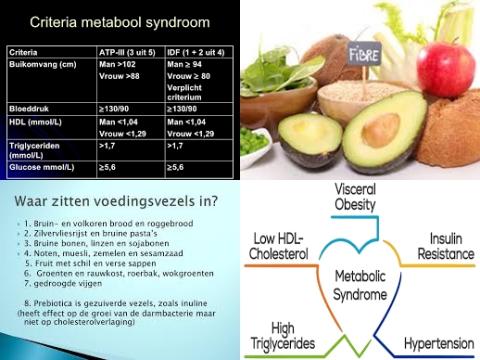
Objectives:
Dietary fiber intake may provide beneficial effects on the components of metabolic syndrome (MetS); however, observational studies reported inconsistent results for the relationship between dietary fiber intake and metabolic syndrome risk. Therefore, this review article (meta-analysis) has been conducted.
Does dietary fiber intake reduce risk of metabolic syndrome?
Study design:
This review article included 11 cross-sectional studies and 3 cohort studies.
There was evidence of publication bias in cross-sectional studies.
Results and conclusions:
The investigators found in cross-sectional studies when comparing the highest with lowest categories of dietary fiber intake, a significantly reduced risk of 33% [OR = 0.67, 95% CI = 0.58-0.78, I2 = 32.4%, p = 0.181] for metabolic syndrome. However, this reduced risk was not significant in cohort studies [pooled RR = 0.86, 95% CI = 0.70-1.06]. Not significant because RR of 1 was found in the 95% CI of 0.70 to 1.06. RR of 1 means no risk/association.
The investigators concluded that a high dietary intake of fiber may reduce risk of metabolic syndrome. May reduce because there was evidence of publication bias in cross-sectional studies and the reduced risk was not significant in cohort studies. Therefore, more prospective cohort studies are needed to further verify the association between dietary fiber intake and the risk of metabolic syndrome.
Original title:
Fruit and vegetable consumption and risk of the metabolic syndrome: a meta-analysis by Tian Y, Su L, [...], Jiang X.
Link:
https://www.ncbi.nlm.nih.gov/pubmed/29151369
Additional information of El Mondo:
Find more information/studies on publication bias/cohort studies/significant, fiber consumption and overweight right here.
Find out whether you are overweight or not right here.
Those with metabolic syndrome are advised to follow a diet with maximum 30 En% fat, of which maximum 7 En% saturated fat and minimum 1.5 grams fiber per 100 kcal.
The most easy way to follow a diet with maximum 30 En% fat, of which maximum 7 En% saturated fat and minimum 1.5 grams fiber per 100 kcal is to choose meals/products with maximum 30 En% fat, of which maximum 7 En% saturated fat and minimum 1.5 grams fiber per 100 kcal.
However, the most practical way to follow a diet with maximum 30 En% fat, of which maximum 7 En% saturated fat and minimum 1.5 grams fiber per 100 kcal is all meals/products that you eat on a daily basis should on average contain maximum 30 En% fat, of which maximum 7 En% saturated fat and minimum 1.5 grams fiber per 100 kcal.